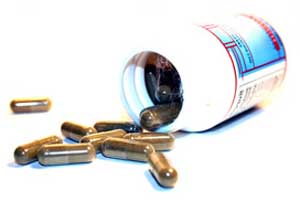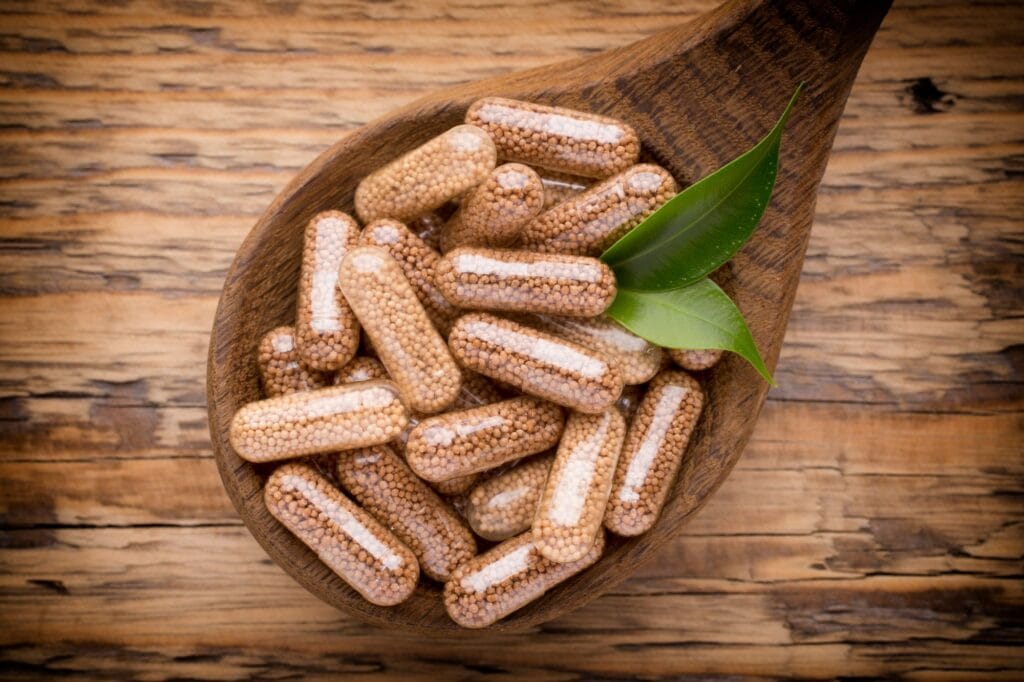Extracts of Pinus pinaster have a long history in traditional medicine or ethnomedicine. Commonly, these extracts are referred to as marine pine bark extract–they’re sold as a dietary supplement known by the proprietary name, Pycnogenol®.
Marine pine bark extract has established antioxidant effects and potential use in promoting cardiovascular health. In fact, its antioxidant effects were known dating back to Hippocrates and were further established by modern scientists.

Researchers from Pakistan published a recent review of pine bark extract in the journal of ethnopharmacology [1].
Surprisingly, there are no shortage of medical conditions for with pine bark extract has been studied. In many areas, there’s very limited data available in terms of randomized controlled trials in humans.
Some of the promising areas appear to be in treating osteoarthritis and reducing cardiovascular risk factors particularly in those with diabetes. With all of the conditions listed below, pine bark extract looks like a modern-day snake oil or cure-all. However, keep in mind that this information is not definitive and based on limited data.
Marine Pink Bark Extract, derived from the marine algae known as Lithothamnion, is a natural wonder that has recently gained attention for its numerous health benefits. Although it may seem like a relatively recent discovery, the use of marine pink bark dates back centuries, with historical records suggesting its utilization by coastal communities around the world.
The history of marine pink bark extract is deeply intertwined with coastal cultures that recognized the value of this marine algae. Coastal communities from Ireland to Iceland have traditionally used it as a source of nutrition and remedies. In Iceland, for example, it was known as “calcified seaweed” and was consumed for its rich mineral content. The extraction process to obtain the valuable pink bark is a relatively modern development, making it more accessible for various applications.
Taste and Smell:
Taste: Marine Pink Bark Extract is not typically consumed in its raw form, but it can be found as an ingredient in various dietary supplements and health products. The taste can be described as mildly salty with a hint of oceanic freshness. Due to its mineral-rich nature, it may have a subtle earthy undertone, which some people find appealing. When incorporated into supplements or health beverages, its taste is often masked by other ingredients, making it more palatable.
Smell: The smell of Marine Pink Bark Extract is reminiscent of the sea, featuring a subtle marine aroma that hints at its oceanic origin. It is not overpowering, and many people find it pleasant, associating it with the natural and pure essence of the ocean.
Biological Effects of Pycnogenol:
- antioxidant activity – the antioxidant activity of pycnogenol has primarily been demonstrated in rat models. PBE has shown to protect against ischemic as well as reperfusion injury. PBE has also shown some activity as an antioxidant with in vivo models.
- anti-inflammatory activity – in human volunteers, PBE has been shown to inhibit both COX-1 and COX-2 enzymes.
- stimulation of eNOS synthase – PBE stimulates nitric oxide release from endothelial cells.
- antimicrobial activity – PBE may act as a natural food preservative
- antiviral activity – PBE may be a promising agent for viral myositis as well as a potential again for HIV-1.
Potential Health Benefits of Pycnogenol
- cardiovascular disorders– There have been several clinical trials of pycnogenol in patients with vascular diseases.
- atherosclerosis – PBE has shown some promising results with in vitro studies, but controlled human trials are necessary.
- venous insufficiency – This is essentially a condition in which your veins have trouble sending blood back to the heart. PBE at doses of 150 mg/d or 300 mg/d were shown to achieve a significant level of improvement.
- Diabetes – Further research is required, but PBE appears to have beneficial effects on diabetic retinopathy, glucose regulation, and diabetic ulcers.
- Cramps and muscular pain – studies have shown that PBE is effective at reducing muscle pain and cramps in athletes, patients with venous insufficiency, and patients with intermittent claudication or peripheral artery disease.
- Cardiac risk factors – One study cited in this review found that supplementation with PBE improved diabetes control, reduced antihypertensive medication use, and lowered LDL cholesterol levels.
- Cancer – One limited study found that supplementation with PBE improved tolerance to chemotherapy in cancer patients.
- Glaucoma – One study cited by the review authors found that PBE was effective at lowering intraocular pressure in patients with glaucoma. Further research is needed in this area.
- Osteoarthritis – Compared to many of the previously mentioned conditions, there are more research studies evaluating the effectiveness of pine bark extract for treating osteoarthritis. These studies suggest that PBE extract at daily doses of 150 mg/d appear to be effective for reducing arthritis pain, improving function, and decreasing patients’ need for anti-inflammatory medication.
- Wrinkles – When combined in a pill with evening primrose oil as well as vitamin E and C, pine bark extract was effective at reducing wrinkles (Botox® cosmetic for wrinkles) as well as UV-induced skin pigmentation in a randomized controlled trial.
- Alzheimer’s disease -PBE improved working memory in elderly volunteers in a randomized controlled trial.
- Attention-deficit hyperactivity disorder ADHD – a small randomized controlled trial showed that PBE was effective in reducing hyperactivity and improving attention in boys, but not girls with ADHD.
- Migraine – a small study found that PBE combined in a pill with vitamin C and E was effective in treating patients with migraines.
Adverse effects of Pycnogenol
Pine Bark Extract or pycnogenol has been declared GRAS (Generally Regarded As Safe) by an independent panel of toxicologists based on a review of 70 human clinical trials.
Common side effects include headache, dizziness, nausea, and gastrointestinal discomfort. No serious adverse events have been reported even at high doses.
Speaking of doses, the review authors noted that doses of 20-100 mg/d for long periods or months are considered non-toxic while doses of 100-300 mg/d for short periods is also regarded as non-toxic.
Reference:
- Maimoona A, Naeem I, Saddiqe Z. J Ethnopharmacol. 2010 Oct 30.






